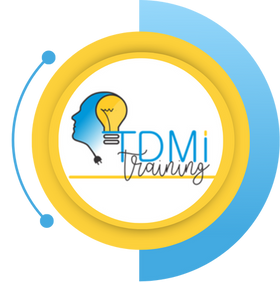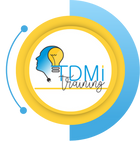Beyond the COC: Why Electric Fence Certification is Your Next Major Revenue Stream
Introduction
For electricians in South Africa, the Certificate of Compliance (CoC) has long been a professional cornerstone. It assures property owners and regulators that electrical installations are safe, legal, and fit for use. But in today’s security-conscious climate, a new compliance frontier is emerging: the Electric Fence Certificate of Compliance (EFC).
Electric fencing is no longer just a feature for high-security sites. It has become standard across residential properties, commercial buildings, and industrial facilities. With this shift, demand for qualified installers who can issue valid EFCs has surged. For electricians, this creates an opportunity not only to expand service offerings but also to tap into a high-demand, compliance-driven revenue stream.
This blog explores why electric fence certification training with TDMI can help electricians future-proof their businesses, increase profitability, and strengthen client relationships. We will unpack compliance requirements, business opportunities, training pathways, and practical steps to integrate EFC services into your portfolio.
1. The Growing Market for Electric Fencing
Rising Demand in South Africa
Electric fencing has become a common feature across South Africa due to persistent safety concerns. Homeowners, estates, and businesses are increasingly investing in perimeter security.
-
Residential properties: Townhouses and suburban homes are installing fences as a first line of defence.
-
Commercial spaces: Office parks and retail centres often require certified electric fencing for insurance purposes.
-
Industrial sites: Warehouses and logistics hubs prioritise fences as deterrents against theft and vandalism.
Revenue Potential for Electricians
The widespread adoption of electric fencing translates into substantial revenue opportunities:
-
Ongoing demand for new installations.
-
Frequent upgrades of non-compliant older systems.
-
Certification services at property sale or transfer.
For electricians, this demand is not seasonal—it is consistent, predictable, and growing.
2. Understanding the Legal and Compliance Framework
Key Regulations
Electric fencing in South Africa falls under:
-
The Occupational Health and Safety Act (OHS Act).
-
The SANS 10222-3 standard, which governs installation practices.
Why a Separate EFC Is Required
An Electric Fence Certificate of Compliance is distinct from a standard electrical CoC. This means:
-
Homeowners cannot rely on their electrical CoC when selling a property.
-
A valid EFC must be issued to complete the transfer process.
-
Any new installation or modification must be certified.
This legal requirement makes certification not just a technical service, but a necessity for property transactions.
3. Who Can Issue an Electric Fence Certificate?
Accreditation Requirements
Only electricians registered with the Department of Employment and Labour as Electric Fence System Installers (EFSIs) can issue EFCs.
Why This Matters for Business Growth
By completing accredited training, electricians can:
-
Expand their service scope.
-
Differentiate from competitors who are not certified.
-
Access a compliance-driven market with high trust requirements.
For clients, this adds reassurance that their system meets both legal and safety standards.
4. Cost vs Return on Investment
Service Fees and Margins
Electric fence certification typically costs clients R550–R650. While modest, this fee is often bundled with other services such as repairs or upgrades.
Training Costs
Accredited training courses cost only a few thousand rand. For electricians who issue even a handful of certificates monthly, the training pays for itself in a matter of weeks.
Long-Term Value
The ability to certify electric fences is not a one-off benefit—it creates ongoing income through:
-
Initial certification.
-
Maintenance inspections.
-
Upgrades and recertification.
5. Expanding Services: From Installation to Certification
Offering an End-to-End Solution
Electricians who complete TDMI training can offer:
-
Installation of compliant electric fences.
-
Upgrades of old or faulty systems.
-
Certification issuance for legal compliance.
Keeping Clients in Your Ecosystem
By providing full service—from wiring to fencing—electricians prevent clients from seeking outside contractors. This enhances loyalty and creates opportunities for cross-selling additional services.
6. Mitigating Liability and Safety Risks
Risks of Non-Compliance
Non-compliant fences can result in:
-
Injury to people or animals.
-
Liability claims against property owners.
-
Insurance claims being rejected.
Protecting Clients and Your Reputation
By offering certified services, electricians shield clients from these risks. They also position themselves as trusted professionals who prioritise safety and legal compliance.
7. Training and Professional Development
The Pathway to Certification
Becoming a registered installer requires completing a Certificate of Competency course. Training covers:
-
Regulatory knowledge: Understanding OHS Act and SANS standards.
-
Technical installation: Practical skills for compliant systems.
-
Testing and certification: Procedures for issuing valid EFCs.
Why Choose TDMI Training?
TDMI provides structured, industry-recognised training that equips electricians with both theory and practice. Courses are designed to:
-
Be time-efficient, often completed within a few days.
-
Deliver hands-on experience alongside classroom learning.
-
Prepare electricians for real-world compliance challenges.
8. Building Client Trust Through Accreditation
Why Accreditation Matters to Clients
Clients are increasingly aware of compliance risks. They prefer professionals who can:
-
Provide recognised certification.
-
Demonstrate adherence to safety standards.
-
Offer transparent, documented service.
Standing Out in the Market
In an industry where shortcuts are common, accredited electricians can build a strong reputation by showcasing:
-
Proof of training.
-
Compliance certificates.
-
Clear, honest communication with clients.
9. Revenue Opportunities Beyond Certification
Bundled Service Models
Electricians can structure services as packages, such as:
-
Installation + Certification.
-
Maintenance + Recertification.
-
Electrical CoC + EFC.
Recurring Income Streams
Since fences require maintenance and recertification, electricians can create predictable, repeat business.
Growth into the Wider Security Sector
Electric fence expertise also positions electricians to expand into complementary areas, including:
-
Alarm systems.
-
CCTV installations.
-
Integrated security infrastructure.
10. Positioning for the Future
Aligning with Market Trends
South Africa’s security industry shows no sign of slowing. As electric fences remain a standard security measure, demand for certified professionals will only increase.
Future-Proofing Your Career
Electricians who invest in electric fence certification today will:
-
Stay ahead of competitors.
-
Secure access to a growing compliance-driven market.
-
Build resilience in their businesses against market shifts.
FAQs: Electric Fence Certification in South Africa
Do I need a separate certificate for my electric fence?
Yes. An Electric Fence Certificate of Compliance (EFC) is legally required, even if you already have a standard electrical CoC.
How much does an electric fence certificate cost?
Clients can expect to pay between R550 and R650, excluding repairs or upgrades needed to pass inspection.
How long does training take?
Most courses can be completed within three to five days, making it a short but high-impact investment for electricians.
Can any electrician issue an electric fence certificate?
No. Only electricians registered as Electric Fence System Installers (EFSIs) may issue certificates.
How often should electric fences be recertified?
Recertification is required after major modifications, during property transfers, or when systems no longer comply with updated regulations.
Conclusion
The future of electrical contracting in South Africa goes beyond the CoC. With crime and security concerns driving demand, electric fence certification represents a major new revenue stream for electricians. By completing accredited training with TDMI, professionals can position themselves as trusted, compliant, and future-ready service providers.
For electricians ready to grow their businesses, the message is clear: invest in training, expand your expertise, and secure your place in the high-demand electric fencing market.


Leave a comment